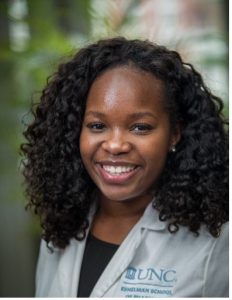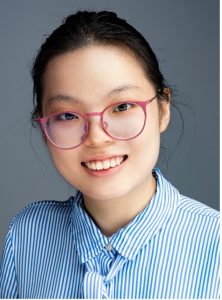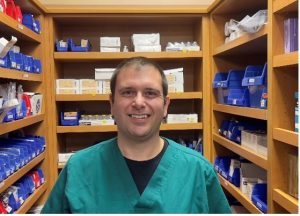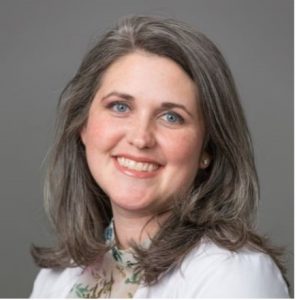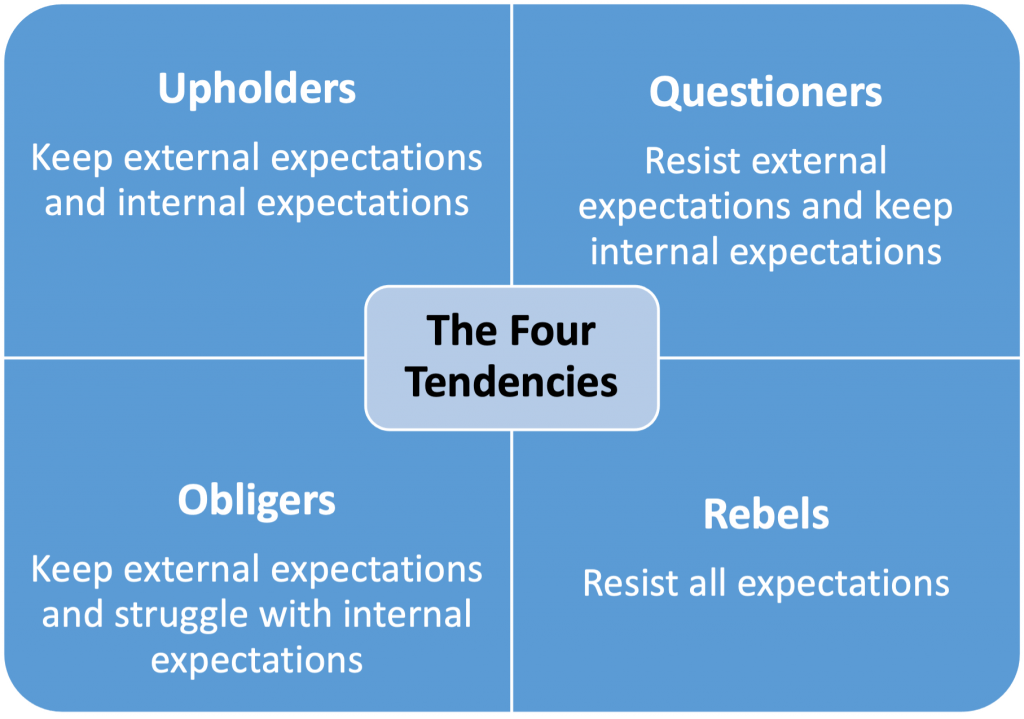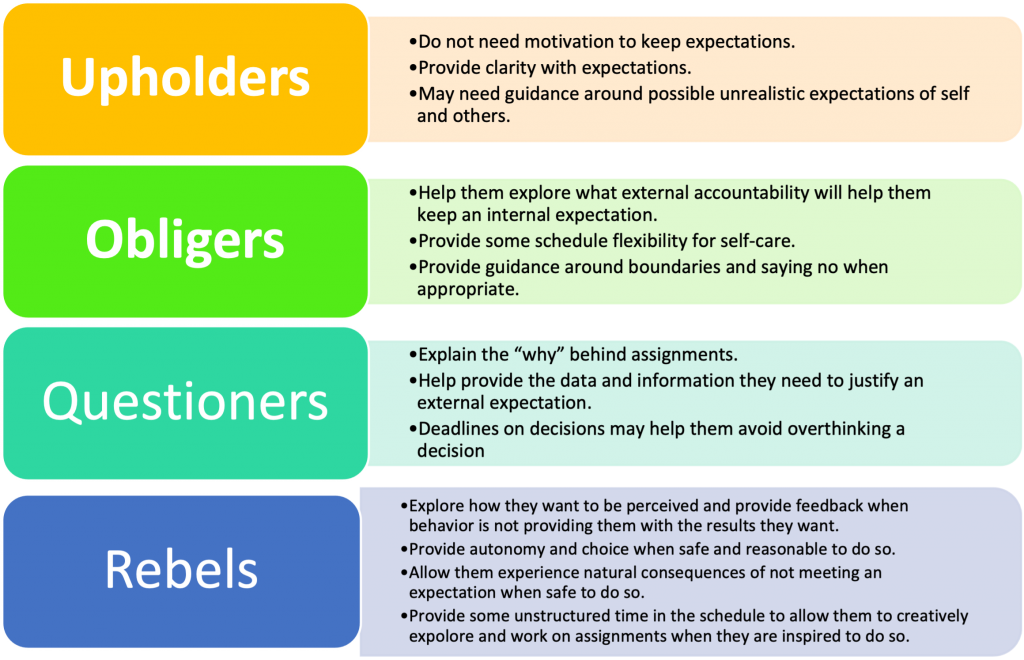Welcome to the UNC Eshelman School of Pharmacy Newsletter for Experiential Partners and Preceptors! Newsletters will share updates about the School and Experiential Programs, recognize our preceptors and students, and provide teaching pearls for preceptors.
Message from the Office of Experiential Programs
Please join the Office of Experiential Programs in warmly welcoming Sharon Wheat to our team in the role of Experiential Programs Quality Specialist.
Sharon Wheat’s tremendous experiences in management and administration have prepared her well to serve as the point of contact for process and procedural issues related to regulatory compliance for clinical site placements. In this role, Sharon will also manage processes and communications related to site affiliation agreements and memoranda of understanding. We are very excited to have her join our team!
Sharon was born in Findlay, OH and raised in Casper, WY. She earned her Associates Degree in Psychology at Bakersfield College in Bakersfield, California. Sharon has three grown children Ryanne (CA), Maddi (TX), and Kim (NC). Once she and her husband had an empty nest, they moved back to Casper, WY to provide assistance to her mother. She remained there until 2021 when she moved to Raleigh, NC to be closer to her daughter Kim and her husband. She hopes to call North Carolina her home from now on.
Sharon has over 30 years of administrative and management experience with a number of companies. She also has experience with quality assurance. Most recently, she served in the Office of Curricular and Student Affairs at UNC Eshelman School of Pharmacy assisting with Co-Curricular School efforts. When asked about her new role she shared, “I absolutely love working with students in our program and love the School of Pharmacy team. I am very much looking forward to this new challenge and continuing to work with the PharmD students, preceptors, faculty, staff, and experiential partners.”
Student Spotlight
The following students were nominated by their preceptors to be highlighted in this edition of the newsletter due to their exceptional work at their sites.
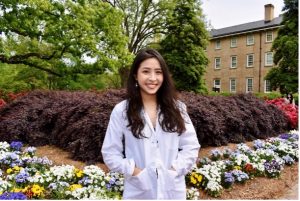 Yao-Hsuan (Patricia) Huang, Class of 2022
Yao-Hsuan (Patricia) Huang, Class of 2022
Patricia Huang was born and grew up in Taipei, Taiwan. After attaining Bachelor of Science in Pharmacy from Taipei Medical University, she moved to Chapel Hill, North Carolina to pursue her Doctor of Pharmacy education.
Patricia desires to complete two years of residency and work as an ambulatory care pharmacist specializing in infectious disease. Expounding upon this she shared, “Coming from Taiwan, where antibiotics are often widely prescribed to patients with common colds, I would like to help optimize antibiotic use and open a door for patients who have concerns or questions about their infection and medication. To promote continuity of care, I also want to provide my patients with a comfortable environment and trusting relationship while monitoring their conditions and medication use on a regular basis.”
In August 2021, Patricia had a Medication Safety/Pharmacovigilance Industry advanced immersion at United Therapeutics. Reflection on her experience there she noted, “I believe the experience of medication safety prepared me with skills that enable me to think from multiple perspectives and would definitely help improve patient care in the future. This rotation truly broadened my vision on drug development process and how medication safety plays a role in the backstage of clinical settings while in different development phases. In my opinion, pharmacists are able to identify early signs of adverse events and then take an immediate action to manage and minimize the risk of worsened outcomes. It is important to figure out the link between reported events and certain drugs that patients are taking.”
Patricia’s preceptor at United Therapeutics, Dr. Ash Higgins, provided the following comments about Patricia’s work at her site. “Patricia absorbed and applied their new knowledge through the types of questions and discussions we had with our external partners. She performed beyond the level of a PY4 student, and I was proud to provide the productive instruction that allowed her to grasp concepts well enough to participate and contribute to our development programs. She drafted our Safety Management Plan which was collaborated on by a cross-functional review team and now used to conduct the safety portion of that study.”
Jasmine Perry is a fourth-year Doctor of Pharmacy Candidate at the UNC Eshelman School of Pharmacy. She received her Bachelor of Science in Biology from NC Central University in Durham, NC. She is passionate about improving health outcomes of vulnerable populations. She currently serves as a student researcher in the UNC Research and Scholarship in Pharmacy program, a teaching assistant for two courses in the pharmacy curriculum, and a pharmacy intern with Walgreens Pharmacy. In her current role as an intern, she conducts Medication Therapy Management interventions for Medicare patients. Her passion to serve under-served populations has been highlighted through clinical experiences, patient interactions, and organizational leadership as the National Legislative and Immigration Chairperson of the Student National Pharmaceutical Association. She aims to put her experience to use aiding in the management of distinct disease states for vulnerable populations. Upon graduation, Jasmine’s goal is to complete a general PGY-1 pharmacy residency program. Her ultimate career goal is to practice ambulatory care pharmacy. Jasmine has a YouTube channel dedicated to pharmacy. Her top video at the time of this writing had over 64,000 views.
During May 2021, Jasmine worked with Dr. Elissa King for an advanced immersion in pharmacy administration. Dr. King shared the following about Jasmine’s work. “Jasmine’s skills are well beyond what I would expect of a PY4 student on their first month of advanced immersion experiences. Jasmine is a self-directed, hard-working, and motivated learner, who truly excelled and maximized every opportunity during her month on rotation with me. I was impressed with Jasmine’s ability to quickly grasp difficult concepts and then relate newly acquired knowledge to experiences later in the month, which speaks to her engagement and independence. Jasmine sat in on several key meetings including one about biosimilar strategies, which involved several key stakeholders including Senior Pharmacy Leadership, the Medication Use Management and Policy Team, and Physician Leadership. Jasmine followed up with great ideas and strategies, that were then discussed at a follow-up meeting. In addition, Jasmine attended a few of our System Pharmacy & Therapeutics meetings and subcommittees, including one specific to Hematology/Oncology, and then presented to our Pharmacy Infusion Team the important formulary changes that the team should expect to see in the upcoming month. This was not something that I required Jasmine to do, but something she wanted to do, and further speaks to her impressive leadership capabilities. These are just a few of the examples of what makes Jasmine an exemplary student and it is an honor to be able to recognize her.”
Lirong Yang’s hometown is Chongqing, China. She received a Bachelors of Science in Clinical Pharmacy from Sichuan University, China. She is completing her Doctor of Pharmacy degree from the UNC Eshelman School of pharmacy. Her advanced immersion experiences are in the Durham region.
Her co-curricular interests included research and teaching. Lirong is interested in a career in clinical pharmacy and research and plans to pursue a fellowship following graduation.
Lirong completed a population health management ambulatory care advanced immersion with the DukeWell Population Health Management Office in June 2021. Dr. Cindy Roberson, one of her preceptors that month, noted the following about her work. “Lirong worked and excelled on a lot of projects with included completing a Quality Improvement Statin Adherence Report, which included almost 80 patients, for one of our payers, a journal club presentation on the new Alzheimer’s drug, and a case presentation on opioids. She answered referral requests, presented patient work up during the Endocrinology and Geriatric Rounds, and answered any drug related questions from the team. She proved to be an asset to our department and we all truly enjoyed working with Lirong. Lirong was a quick learner, professional, and she was very thorough with all of her work. I have no doubt that Lirong will be a successful pharmacist.”
Preceptor Spotlight
Dr. Brian Fisette is a clinical pharmacist and primary preceptor at Mission Hospital McDowell in Marion, NC. He earned his PharmD from UNC Eshelman School of Pharmacy in 2016 and completed a PGY1 Acute Care Residency at Novant Health Presbyterian Medical Center in Charlotte, NC. Having completed his fourth year rotations at Mission Health, Brian was excited to be able to come back to practice alongside many of his former pharmacy preceptors. Brian currently precepts students from UNC Eshelman and Wingate University Schools of Pharmacy.
Mission Hospital McDowell is a 25 bed community hospital serving Marion and the surrounding communities in McDowell County. While at a small rural hospital rotation site such as McDowell, students get to see a wide variety of clinical and operational aspects involved in inpatient hospital pharmacy. Student experiences at McDowell include multidisciplinary rounding, antibiotic stewardship, aseptic technique, Pyxis medication fills, medication reconciliation, controlled substance audits, drug information response, administration experiences, code response and many other tasks. Pharmacy students are also exposed to technician workflow as much as possible, as they will be directly supervising technicians in the workplace. In addition to student rotations, McDowell also has a pool of pharmacy student interns that staff weekends at the hospital (many of whom had a rotation at McDowell Hospital).
Dr. Fisette’s teaching philosophy includes giving students and learners the tools they need to make their own informed decisions, while providing a solid support structure when a learner seeks advice or expertise. A great pharmacist is also a well-rounded pharmacist, being able to adapt to many different situations that arise in the fast-paced and ever-changing environment of healthcare. In a setting such as McDowell Hospital, the capability of functioning in many different roles is extremely important. Dr. Fisette’s ultimate goal is for students to walk away from rotation with the confidence and experience to propose solutions to problems. More important than having all the answers to questions, is being capable of quickly and efficiently locating the information needed to answer such questions.
Outside of work, Dr. Fisette’s interests include travelling, hiking and wildlife photography
Josh Fowler, UNC Eshleman School of Pharmacy Class of 2023, shared the following regarding his immersion experience with Dr. Fisette. “I was initially worried about being placed at a small rural hospital, but Dr. Fisette made the experience unique and dynamic. I was able to gain experience in everything from med recs, to vancomycin and warfarin consults, to even responding to codes. I was able to learn from rounds and even gain valuable experience in hospital administration. Dr. Fisette made sure that every day during rotation I had an opportunity to grow and learn. He incorporated me into all aspects of the team from technician work to administrative decisions. Dr. Fisette truly helped me understand what a clinical pharmacist does and how they contribute to a healthcare team.”
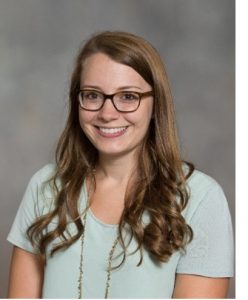 Rachel Henderson, PharmD, BCPS, CPP
Rachel Henderson, PharmD, BCPS, CPP
Dr. Rachel Henderson is a clinical pharmacist with UNC Health’s Managed Pharmacy Solutions (MPS). She specifically works with the population health team, Carolina Assessment of Medications Program (CAMP), whose goals are to empower patients to live healthier lives and improve health outcomes. She is also a Clinical Pharmacist Practitioner (CPP) at Chapel Hill Internal Medicine. Dr. Henderson received her Doctor of Pharmacy from the University of Tennessee College of Pharmacy. She completed a PGY1 Pharmacy Practice Residency at the Tennessee Valley Healthcare System VA and completed a PGY2 Ambulatory Care Residency with Cone Health and Triad HealthCare Network.
MPS, led by Executive Director Penny DeFalco, PharmD, MJ, is an innovative pharmacy practice within UNC Health. Their services span pharmacy benefits management/managed care, population health, clinical program development, and performance management for value care outcomes. Additionally, most CAMP pharmacists are engaged in traditional ambulatory care CPP work a portion of each week. MPS also leverages the expertise of Certified Pharmacy Technicians (CPhT’s) to support all workstreams. The MPS preceptor team includes LeAnn Botts, Rebecca Brady, Brittany Cox, Penny DeFalco, Leigh Foushee, Rachel Henderson, Diana Hill, Amanda Johnson, Mary-Russell Laurent, Mandi Boykin McCoy, Sarah Pawlak, Haley Rua, Nick Schnarr, Marina Stamopoulos, Gretchen Tong, and Daniel Wolverton.
When precepting, MPS utilizes a collaborative approach to increase learner exposure to the unique setting, minimize preceptor burnout, and optimize scheduling efficiency. Dr. Henderson leads MPS alignment efforts through the preceptor workgroup. The first task of the workgroup was to create a standardized orientation model that all learners complete at the beginning of their rotation month. Now, each month the workgroup meets to plan each student’s experience including exposure to various aspects of MPS, determine the daily contact point, and create links for remote check-ins and feedback. After learners view the orientation module, they meet with team leaders of MPS for a deeper dive of their specific area of expertise. Over the course of the month, learners meet with subject matter experts for clinical and PBM topic discussions.
Megan Byrne, UNC Eshelman School of Pharmacy Class of 2022, shared the following when asked about her experience at MPS. “I had the pleasure of completing my ambulatory care rotation at UNC CAMP with Dr. Rachel Henderson in July. I learned more about MPS as a whole through introductory presentations. I was also able to meet other pharmacists within MPS through various topic discussions on clinical topics or topics regarding managed care. As a learner, these presentations were helpful to learn more about the different roles and responsibilities within MPS. From the very first day in clinic, you could tell how much Dr. Henderson’s patients appreciated her patience and dedication to their care. She effortlessly connected with her patients, virtually and in-person, and helped them to understand more about their medications and comorbidities. As a learner, I appreciated her commitment for helping me make the most of the rotation. She encouraged me to take initiative early on in the rotation and had me leading my own patient visits ahead of schedule. Dr. Henderson also adapted the rotation to add projects that cater to my professional goals and interest. Dr. Henderson was a great preceptor and mentor, and I’m very thankful to have had a rotation with her.”
Dr. Ash Higgins is the Sr. Development Risk Management Scientist and Product Complaint Intake Lead at United Therapeutics Corporation in RTP, NC. Dr. Higgins is an alumna of UNC Chapel Hill, earning a BA in Asian Studies in 2011 and her Doctor of Pharmacy from Eshelman School of Pharmacy in 2015. As a member of the Global Product Safety and Pharmacovigilance Team, she supports the development programs for Remodulin® and Tyvaso®, which most recently gained FDA approval for the treatment of pulmonary hypertension associated with interstitial lung disease (PH-ILD) due to data from the INCREASE Study. She also supports the development of medical devices for parenteral and inhaled administration.
“It is my responsibility to guarantee regulatory and pharmacovigilance compliance for these therapies pre- and post-market. Ultimately, I ensure our medications and the systems that deliver them are safe, effective, and easy to use for our patients. I try to share that responsibility with my students in a more collaborative, engaging approach to their experiential education. The first half of the month we learn, the last half we apply.”
Recently, this involved allowing a student to draft the Clinical Study Safety Management Plan as part of start-up activities. Dr. Higgins created an environment where they could discuss clinical trials, medical devices, drug and device approvals, and regulations within the context of her work, where her student felt comfortable enough to ask any question to affirm understanding.
Yao-Hsuan (Patricia) Huang, UNC Eshelman School of Pharmacy Class of 2022, noted the following about her experience. “I am extremely fortunate to have the experience working with UT GPS&PV. They are very welcoming and embrace the diversity, and I can feel the strong support system in the team.”
Dr. Higgins provided the following five precepting strategies when asked about her teaching practices.
- Reach out to students prior to the beginning of the experience to determine what objectives the student set for themselves. This may include the types of knowledge and experience they hope to gain but may also include professional development skills or other challenges the student would like to address during the month. This is also an opportunity to put the student in touch with professionals in other roles/functions throughout the month. Dr. Higgins compiled a list of colleagues who volunteered to speak 1:1 with her students about their responsibilities, backgrounds, and careers.
- What are your goals for this rotation? Are there any specific types of projects or work you would like to participate in or be exposed to?
- What most excites you about an Industry rotation and is Industry a career path you are strongly considering?
- What is a skill you would like to improve and challenge yourself with throughout the month?
- Schedule weekly 1:1s outside of other rotation activities (15mins – 30mins) to check in and determine what is and is not working so far. She states it is important to dedicate that time to your student and show how invested you are in their development. “I aim to provide the experience and knowledge that would have most benefitted me when I was in their position. I highly encourage questions because it shows me where I can provide more information to improve their experience. I openly communicate and am transparent about my expectations and what I can do to meet theirs.”
- Take 5-10mins prior to any meetings where your student will shadow and explain the purpose of the meeting and your role/decisions in it. That will help put your responsibilities in context and allow the student to better engage with the content of the meeting and follow up with any critical questions.
- Discuss projects at the beginning of the month by explaining the deliverable and how it supports your work or adds value to your team. Projects should be impactful and not simply busywork. Do not be afraid to allow your student to tackle a high-visibility project. As the supervisor and advisor, guide your student and give recognition to their work with your team. Schedule time to discuss progress and provide constructive feedback to steer or course correct your student. Ask yourself whether the project would be able to showcase the skills your student improved over the month.
- Let your student see how excited you are to work with them! Seeing your enthusiasm further motivates them to perform well and even exceed expectations. Be proud of their progress and compliment them on a good question or recognize their thought processes! Email your team on the first day of the rotation to introduce and welcome them. Send an email on the student’s last day to wish them well and highlight what they’ve accomplished during the month. Your student will feel valued and that is integral to their growth as future pharmacists.
Dr. Carla Jardin is a clinical pharmacist at Duke University Hospital. Dr. Jardin earned her Doctor of Pharmacy degree from the University of North Carolina Eshelman School of Pharmacy in Chapel Hill, NC in 2010. She completed post-graduate training at CHI Baylor St. Luke’s Medical Center in Houston, TX. While Dr. Jardin has a passion for cardiology and critical care, over her career she has provided care for a wide range of critically and acutely ill patient populations. She truly enjoys the challenge and reward of precepting learners from early in pharmacy school and into residency. Dr. Jardin received the Early Immersion Preceptor of the Year Award from Duke University Hospital in 2020.
Dr. Jardin has been precepting pharmacy students and residents since completion of her residency training. One of her favorite formative assessment tools is the 3-2-1. Each week or after a particularly challenging scenario she asks her learner to answer the following questions:
3 – What are 3 things you did not know prior to the experience?
2 – What are 2 things that surprised you from the experience?
1 – What is 1 thing that you will do differently based on this experience?
What her students have appreciated most with this formative assessment tool is the opportunity to reflect. From this exercise, students realize how much they have learned and how the experience will shape their professional practice moving forward. Dr. Jardin has found this skill to be rewarding as a preceptor as she observes her students becoming more self-aware and discovering the value in their clinical experiences.
Over the past year and a half, Dr. Jardin has spent a majority of time caring for patients hospitalized with severe or critical COVID-19. During this time, she has continued to precept and evolve her precepting skills. Since COVID infection is a new disease that providers will continue to treat in the inpatient setting for the foreseeable future, she adapted her general medicine rotation to have a focus in COVID treatment. Throughout the month, students would round with a general medicine service while also following 2-3 COVID patients daily. After rounding, Dr. Jardin would review and discuss patient care with her students. Students were asked to read the NIH guidelines for COVID treatment to prepare for a weekly topic discussion on the following COVID topics: 1) inpatient COVID treatment, 2) anticoagulation of COVID patients with severe and critical disease, 3) outpatient COVID treatment/monoclonal antibody therapies, and 4) COVID vaccination. With the rapidly updating literature on COVID treatment, the student would also present a journal club on one of the late-breaking trials on the subject. In addition, Dr. Jardin incorporated other weekly topic discussions on disease states and therapies more consistent with a traditional general medicine rotation. Her students appreciated learning about an evolving area of medical and pharmaceutical care in addition to building upon the foundation of pharmacotherapy learned in the classroom. Dr. Jardin hopes that this will encourage other preceptors to avoid hesitancy in training students in the midst of learning a new disease state for themselves. It is an awesome opportunity for learners to see how clinical practice changes, evolves, and never remains stagnant. Precepting learners on a new disease state or therapy is a poignant example of how becoming a pharmacist means becoming a forever learner!
The following quotes about Dr. Jardin were shared by Hannah Naguib, UNC Eshelman School of Pharmacy Class of 2022. “Dr. Carla Jardin served as my first adult inpatient preceptor and empowered me to jump in to learn firsthand! She had me independently round with the general medicine team, which enabled me to hone my interprofessional communication skills and reflect on patients’ therapy plans prior to running questions or interventions by her. My month with Dr. Jardin was greatly centered around growth. From learning how to manage an increasing patient load to leading a journal club and case presentation, I left this experience with a broader understanding of general medicine disease states and therapies, more comfortable with leading topic discussions and formal presentations, and with an efficient system for reviewing patients prior to rounds. My rotation with Dr. Jardin established a solid foundation for me as I advanced to future clinical rotations, and I cannot thank her enough for pushing me as a student to perform at my highest potential and for her unceasing support along my journey”.
Preceptor Recognition
Pharmacy Advancement Clinical Education Adjunct Faculty Appointments
Congratulations to the following individuals who received or renewed their Assistant Professor of Clinical Education adjunct appointments in July 2021, for sustained involvement in teaching, scholarship, and service to the School and profession. The School is grateful for their contributions. More information about this biannual process can be found here.
Carson Hart, PharmD, MS, BCPS, Director of Clinical and Ambulatory Pharmacy Services, PGY1 Pharmacy Residency Program Director, UNC Rex Healthcare, Assistant Professor of Clinical Education UNC Eshelman School of Pharmacy
Justin Reid, PharmD, BCOP, Clinical Pharmacy Specialist, Hematology/Oncology, UNC Health, Assistant Professor of Clinical Education UNC Eshelman School of Pharmacy
Jennifer Sutherland, PharmD, Clinical Pharmacy Specialist, Emergency Medicine, Residency Program Director, PGY2 Emergency Medicine, UNC Health, Assistant Professor of Clinical Education UNC Eshelman School of Pharmacy
Michell Tuner, PharmD, BCPS, BCIDP, Clinical Coordinator, PGY1 Residency Program Director, Clinical Pharmacist, Cone Health, Assistant Professor of Clinical Education UNC Eshelman School of Pharmacy
Preceptor Pearl
Charlene Williams, PharmD, BCACP, CDCES
Using the Four Tendencies to Better Understand Your Learner
Have you ever wondered why some learners respond well to all rotation expectations, some respond well to certain expectations and not others, and others not very well to any expectations? Gretchen Rubin’s book the Four Tendencies can provide insight to better understand our learners (and ourselves).
Gretchen Rubin hosts the Happier podcast and is also author of the Happiness Project. The Four Tendencies, also written by Rubin, is a handbook on the four personality profiles based on how we respond to expectations. The Happier podcast episodes 13 and 35-38 also provide information on The Four Tendencies. The quiz to identify your tendency can be found here. There is no preferred tendency. Sharing insights about our tendencies should be a voluntary process. Understanding our learners’ perspectives can help us be more compassionate to their responses around expectations, guide us with how to better motivate them, and coach them around adaptability.
The below figure briefly describes the four tendencies and their usual responses to expectations. Some examples of external expectations include rotation assignment deadlines and team requests. Examples of internal expectations are individual health goals and personal boundaries around working at home. Additional guidance can be found in The Four Tendencies book or the Happier podcasts dedicated to the topic.
The following table provides extrapolated information on how to potentially apply this information to help motivate your learner around expectations in experiential settings:
Preceptor Well-Being Minute
Monica Cozad, PharmD Candidate Class of 2022
Suzanne Harris, PharmD, BCPP, Director of Well-being and Resilience
Mindfulness
Many of us find ourselves stressed out and overwhelmed in the workplace. It might seem like there is not enough time in the day to pause and take a breather. As we re-adjust to a new normal with the COVID-19 pandemic, it’s important to remember our personal wellbeing and take some time each day to practice mindfulness.
What is mindfulness? Mindfulness is when your thoughts are focused on what is happening in the present and what your body is doing in the space you are in. Benefits of mindfulness include reduction of stress and emotional exhaustion as well as improved job satisfaction (Hülsheger et al, 2013).
Mindfulness does not need to be an hours-long meditation session. It can be a few minutes before you start your day or during your lunch break. Here are some tips for practicing mindfulness in the workplace:
- Breathing: Count 1 on the inhale, 2 on the exhale, 3 on the inhale, and so forth. Count to 10 and back down to 1 or set a timer for 2 minutes. Focus on the task of breathing and try to avoid wandering thoughts.
- Body scan: Perform a mental scan, from the top of your head to your toes. Think of a photocopier light moving down your body; take note of how your body feels as the scanner moves down. Give each part of your body your full focus and attention.
- Reflection: Take some time at the beginning or end of the day to ask yourself “what are you most grateful for”? Close your eyes and focus on feelings of gratitude, not the explicit answer to the question.
Mindfulness resources:
- Read more about mindfulness practices
- The headspace app and website provides guided mediations, animations, articles, and videos to promote daily mindfulness.
References:
- Hülsheger UR, Alberts HJ, Feinholdt A, Lang JW. Benefits of mindfulness at work: the role of mindfulness in emotion regulation, emotional exhaustion, and job satisfaction. J Appl Psychol. 2013;98(2):310-325. doi:10.1037/a0031313
- “What is Mindfulness?” Mindful Healthy Mind, Healthy Life, 2020, https://www.mindful.org/what-is-mindfulness/.
- “Types of meditation” Headspace, 2021, https://www.headspace.com/meditation/techniques.
Newsletter Suggestion Box
We would love to hear from you! Please submit your feedback and suggestions for newsletter improvement along with ideas for future content (preceptor spotlight, student spotlight, preceptor pearl, etc.) here.
Upcoming Events and Other Information
We are planning a spring CIPhER/OEP Preceptor Design Lab Session on the topic of Mitigating Ableism. More to come.
Office of Experiential Programs Contact Information
Office Leadership:
Nicki Pinelli Reitter, PharmD, MS, FCCP, CDE
Assistant Dean of Experiential Programs
Responsible for leading the Experiential Education Program and for building and sustaining strategic experiential partnerships. The Assistant Dean of Experiential Programs also serves as the lead administrator of the Experiential Education Program and is responsible for experiential practice site and preceptor engagement initiatives with the School.
nickipinelli@unc.edu
Abbey Kruse, M.Ed.
Interim Director, Office of Curricular and Student Affairs
Assistant Director, Office of Curricular and Student Affairs – Experiential Programs
Primary contact for student academic, well-being, professionalism, or discrimination/harassment concerns. Provides Eshelman Care Line and COVID Exposure oversight.
abbeykruse@unc.edu
Christy Holland, PharmD, BCACP
Director of Experiential Programs
Provides oversight of Immersion and Advanced Immersion experiences and serves as the primary point of contact for guidance regarding experiential policies and procedures. Provides assistance with setting student expectations, structuring learning activities to meet learning experience requirements, and guidance with student evaluations.
christy_holland@unc.edu
Experiential Placement and Systems Support:
Jenny Kaselak, BS, MEd
Experiential Programs Manager
Directs student experiential placements and scheduling. Contact for AHEC housing and payments and CORE/ELMS RxPreceptor account questions.
jenny_kaselak@unc.edu
Student On-boarding and School Requirements:
Sharon Wheat
Experiential Programs Quality Specialist
Ensures student completion of site-specific onboarding and school requirements (e.g. immunizations, drug screenings, criminal background checks, CPR, HIPAA Training, OSHA Training, TB Status, and other onboarding as required by sites). Point of contact for site affiliation agreements and memoranda of understanding.
skwheat@unc.edu
Preceptor Training, Development, and Recognition:
Charlene Williams, PharmD, BCACP, CDCES
Director of Preceptor Development
Develops and oversees preceptor onboarding, training, development, and recognition. Point of contact for preceptor training and development needs and preceptor newsletter content.
charlene_williams@unc.edu
Newsletter Content Editor:
Charlene Williams, PharmD, BCACP CDCES
Charlene_williams@unc.edu
Newsletter Content Marketing Manager:
Brittany Jennings
brittany_jennings@unc.edu



